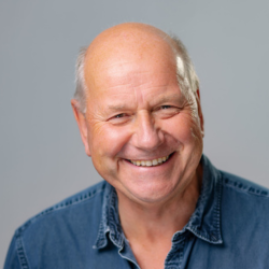James Scourse

'Quantifying the impact of major cultural transitions on marine ecosystem functioning and biodiversity'
James Scourse’s research focuses on long-term marine climate and ecosystem changes, mechanisms, and feedback responses in the Earth’s climate system, particularly linked to ice-ocean interactions and the impact of sea level changes on the carbon cycle, sediment transport and ocean circulation.
He leads the European Research Council Synergy SEACHANGE Project, establishing the impact of major human cultural transitions on marine biodiversity and ecosystem functioning. His group has pioneered the development of sclerochronology, reconstructing marine climate and ecosystem change using very long-lived, annually banded molluscs. Notable research highlights include the first annually-resolved marine climate series covering the last 1000 years (2017), the discovery of the longest-lived animal known to science (2007, 2013) and the first crossmatched sclerochronological series from the fossil record (2006).
James co-ordinated and led two major EU research consortia (SHELF and HOLSMEER), was a senior member of the 40-partner EU MILLENNIUM project (European Climate of the Last Millennium), and has held eleven UK NERC research grants. Much of his research is based at sea and he has served as Chief Scientist on 11 research cruises, including as Principal Scientific Officer on the final cruise of the RRS James Clark Ross in Antarctica in 2020.
James was President of the Quaternary Research Association (2008-2011), Editor of the Journal of Quaternary Science (2000-2004), Royal Society-Leverhulme Trust Senior Research Fellow 2008-2009, elected Fellow of the Learned Society of Wales in 2014 and awarded the ScD degree from the University of Cambridge in 2023.
ERC Project - Quantifying the Impact of Major Cultural Transitions on Marine Ecosystem Functioning and Biodiversity (SEACHANGE)

